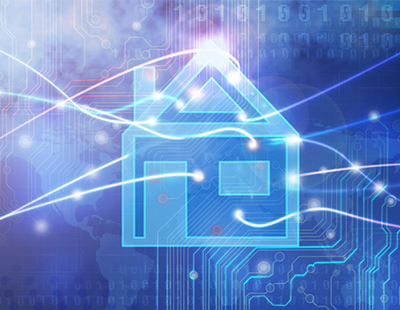
How real estate can embrace the use of smart-tech
Aside from handy productivity boosters, it’s likely that their money saving attributes will have also contributed greatly to the rise in smart-tech appliances. With inflation currently sitting at a 40-year high of 9.1% and energy prices through the roof, households feeling the financial squeeze are looking for ways to offset soaring bills.
Unsurprisingly, homeowners are turning to smart-tech to reduce these costs. Smart thermostats and heating are an effective way to control the temperature of a home – either through a smartphone or voice-activated smart home network. More efficient control over the thermostat will be particularly appealing for consumers when taking into account estimates by the Energy Savings Trust, that turning the thermostat down by one degree can drop energy bills by 10%.
The digital technology that accompanies smart appliances can also monitor and calculate energy efficiency and costs, therefore allowing users to stay on top of their bills. For example, a 4E report found that greater control over the use of energy and lighting through smart-tech could reduce a property’s energy usage by 30%.
Developers must stay on track
The shift in homeowner and investor preferences has come at speed; therefore, property developers and construction companies must remain on their toes when it comes to smart technology.
Keeping up with such trends will be key in increasing the properties’ value. A recent Whathouse? survey found that of 80% of estate agents, smart-tech had helped them sell houses. At the same time, more than 50% has sold property with smart-tech at a higher asking price than comparable properties.
Developers should therefore factor in smart-tech at the construction stage. Doing so will ensure that the integrated systems will work a lot more efficiently than if the tech was to be installed later on, in turn, allowing enabling to remain competitive through higher asking prices.
Moreover, developers will have the opportunity to meet another vital shift in investors’ preferences: sustainability. Recent research from FJP Investment revealed that for 39% of UK homeowners the sustainability and energy efficiency of their property become more important to them since remote working patterns became more normal. As such, embracing smart-tech will be key in ensuring new homes are meeting investors’ sustainability goals.
Since the onset of the pandemic, there has been a clear acceleration of technological and sustainability demands amongst buyers and investors. Clearly, technologies that facilitate a comfortable home working environment and can, somewhat, protect from soaring energy prices have come to the forefront of these introspections. This provides the property industry with an opportunity to assess its current construction procedures and anticipate the future needs of buyers and investors, in order to deliver sustainable and future-proof assets in today’s competitive market.
*Jamie Johnson is the CEO of FJP Investment


